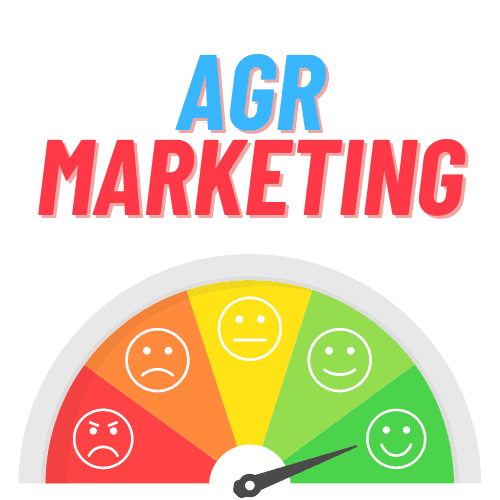How to find the BEST KEYWORDS for your website (2023)
In search engine optimization (SEO), keywords are the key to success. The terms and phrases allow people to find your website through search engines like Google.
Without effective SEO keywords, your website will struggle to generate traffic and outrank your competitors. That’s why it’s crucial to find the best keywords for your website, and in this article, we will show you how to do just that.
We will discuss the importance of keywords in your SEO strategy, recommend a valuable tool for keyword research, and guide you through the process step by step. By the end of this article, you’ll have the knowledge and tools necessary to optimize your website and increase its visibility online.
In this article, we aim to highlight the significance of keywords in your SEO strategy, suggest a valuable keyword research tool, and provide a step-by-step guide to assist you. By the time you finish reading, you’ll possess the necessary knowledge and tools to enhance your website’s visibility and optimize it for better online exposure.

Keyword Research
Keywords are an essential component of any successful SEO strategy. By understanding the importance of keywords, using tools like Ahrefs for research, and considering various factors in keyword selection, you can optimize your website to attract more organic traffic and outrank your competitors.
Understanding the Importance of Keywords
Keywords play a crucial role in SEO. They are the words or phrases that internet users type into search engines when looking for information, products, or services. Incorporating relevant keywords into your website content increases the chances of your website appearing in search engine results pages (SERPs).
When people search for specific keywords related to your business or industry, you want to ensure the website is among the top results. Many users click on one of the first few organic search results. By targeting the right keywords, you can increase your visibility, drive more organic traffic to your site, and potentially boost your revenue.
Keywords act as a pathway for users to find your website. They connect your content with the needs and interests of your target audience. By conducting thorough keyword research, you can identify your target audience’s language and terminology to search for solutions or information.
By aligning your content with these keywords, you can enhance the relevancy and visibility of your website, ultimately improving your chances of attracting your ideal users.
In essence, keywords serve as the foundation of your SEO strategy. They guide your content creation efforts, help you optimize your website structure, and influence various on-page and off-page SEO tactics. By investing time in understanding the importance of keywords, you set yourself up for success in organic search rankings and overall visibility on the web.
Using Ahrefs for Keyword Research
Ahrefs is a powerful SEO tool that can significantly assist you with keyword research. This tool provides valuable insights into your website’s performance, including keyword rankings, backlinks, and competitor analysis.
Regarding keyword research, Ahrefs offers comprehensive features and benefits that can save you time and help you make data-driven decisions. One of the critical features of Ahrefs is its keyword explorer tool.
This tool allows you to search for keywords relevant to your industry or niche. It provides in-depth information about each keyword, including search volume, keyword difficulty, and potential traffic.
To conduct keyword research with Ahrefs, start with an entire word or a general term related to your business. Ahrefs will then generate a list of related keywords with essential data, including the search volume and keyword difficulty.
You can analyze these metrics to determine which keywords are worth targeting based on their potential traffic and how difficult it would be to rank for them.
Ahrefs also offers additional features that can enhance your keyword research process. For example, you can explore keyword ideas from different countries or regions, find questions related to your keywords that people are asking online, and even analyze the keywords your competitors rank for.
These functionalities allow you to understand keyword trends better, discover untapped opportunities, and stay ahead of the competition.
Factors to Consider in Keyword Selection
When selecting keywords for your SEO strategy, it’s importantessentialder to use several factors to ensure you’re targeting the right keywords and maximizing your chances of success. Here are three key factors to keep in mind:
Keyword Relevance and Target Audience
The keyword’s relevance to your business or industry is the first factor to consider. You want to target keywords pleasing to your products, services, or content offerings. By focusing on relevant keywords, you increase the likelihood of attracting users who are genuinely interested in what you have to offer.
Understanding your target audience is also crucial in this process. Consider the language and terminology they use when searching for information or solutions. By aligning your keywords with their search behavior, you can better match their search intent and improve the overall relevancy of your content.
Keyword Difficulty and Competition
Keyword difficulty refers to how difficult it is to rank for a specific keyword. A high keyword difficulty score indicates that many websites already compete for that keyword, making it harder to outrank them.
When conducting keyword research, pay attention to the keyword difficulty metrics provided by tools like Ahrefs.
Ideally, you want to strike a balance between targeting keywords with high search volume and lower competition. This will allow you to attract significant organic traffic while increasing your chances of ranking higher in search results.
Search Volume and Potential Traffic
Search volume refers to the average number of times a keyword is searched for in a given period. It’s important to consider search volume when selecting keywords because targeting keywords with higher search volume can potentially bring more traffic to your website.
However, high search volume doesn’t always translate to higher conversion rates or better engagement. It’s essential to assess the keyword’s relevance and understand your target audience’s search behavior to ensure you attract exemplary site visitors.
Filtering and Choosing Relevant Keywords
Once you’ve conducted thorough keyword research, it’s time to filter and choose the most relevant keywords for your website. Here are three strategies to guide you in this process:
Narrowing Down Keywords with Specificity
Generic keywords often have high competition and may not attract the most qualified traffic. To refine your keyword selection, focus on specific keywords that accurately reflect your content or products.
For example, instead of targeting the generic keyword “shoes,” you could narrow it down to “running shoes for women” or “affordable hiking boots.”
By targeting specific keywords, you can better reach your intended audience and increase the chances of attracting visitors more likely to convert.
Using Long-Tail Keywords for Better Targeting
Long-tail keywords consist of longer phrases or queries that are more specific and less competitive than broader keywords. These keywords often have lower search volume but a higher chance of converting visitors into customers.
For example, instead of targeting the broad keyword “dog training,” you could use long-tail keywords like “how to train a German Shepherd puppy” or “positive reinforcement techniques for dog obedience.”
By incorporating long-tail keywords into your content, you can better address your target audience’s needs and interests, e your chances of ranking higher in search results for those particular queries, and attract more qualified traffic.
Combining General and Specific Keywords
Combining general and specific keywords can help you strike a balance broader audience and target more focused queries. Using a mixture of public and particular keywords, you can draw a broader range of users while optimizing your content for niche topics.
For example, if you have a blog about travel, you could target a general keyword like “best travel destinations” as well as specific keywords like “family-friendly beach resorts in Mexico” or “adventure activities in New Zealand.”
This combination allows you to cover a broad spectrum of topics within your niche while maximizing your chances of ranking for popular and highly relevant searches.
Optimizing Your Website with Keywords
Now that you’ve selected your target keywords, it’s time to optimize your website to leverage its potential. Here are three key areas where you can strategically place keywords to improve your SEO:
Strategically Placing Keywords in Website Content
The content on your website should be optimized with relevant keywords to improve its visibility in search engines. Incorporate your target keywords naturally throughout your website content, focusing on critical areas such as headings, subheadings, and the body text of your pages.
However, avoiding keyword stuffing is crucial, which refers to the excessive and unnatural use of keywords to manipulate search engine rankings. Search engines prioritize high-quality, user-friendly content. Therefore, it’s essential to use keywords to enhance the readability and overall value of your content.
Using Keywords in Page Titles and Meta Descriptions
Page titles and meta descriptions are vital in attracting users to click on your website in search results. These elements should incorporate your target keywords to communicate the relevance of your content and entice users to click through.
When crafting page titles, ensure they accurately describe the content and include relevant keywords while remaining concise and informative. Meta descriptions, on the other hand, summarize your page’s content and persuade users to click through. Include your target keywords naturally in these descriptions to enhance relevancy and visibility.
Utilizing Keywords in Image Alt Tags and URLs
Images on your website can also benefit from keyword optimization. When adding images to your web pages, include descriptive alt tags. Alt tags not only visually impaired users who rely on screen readers but also search engines with additional context about your page’s content.
Additionally, consider optimizing your URLs. Use descriptive words and relevant keywords in your URLs to make them more search engine-friendly and provide users with a preview of the page’s content. For example, instead of using a generic URL like “www.example.com/page1,” opt for a more descriptive one like “www.example.com/best-travel-destinations.”
By strategically placing keywords in these critical areas of your website, you can improve your visibility in search results and attract more organic traffic.
Outranking Competitors with Keyword Strategy
One of the key advantages of a well-executed keyword strategy is the potential to outrank your competitors in search results. Here are three steps to help you outrank your competition:
Competitor Analysis and Keyword Gap
Conducting competitor analysis is essential to identify weaknesses and uncover opportunities for your keyword strategy. Use tools like Ahrefs to analyze the keywords your competitors are ranking for and identify any gaps in their keyword targeting.
By understanding your competitors’ keywords, you can refine your strand and find untapped opportunities. Pay specific attention to keywords your competitors are not targeting but are relevant to your business. By targeting these keywords, you can attract traffic your competitors are missing out on.
Identifying Weaknesses in Competitor Keywords
While analyzing your competitors’ keyword strategies, please consider their weaknesses. Look for keywords that competitors rank poorly for or have a low search volume. These keywords may allow you to optimize your content and outrank them.
Additionally, analyze your competitors’ content quality and user experience. If their content lacks depth, isn’t well-optimized with target keywords, or fails to engage users effectively, you can position yourself as the expert in the field by creating high-quality content that addresses users’ needs more comprehensively.
Developing a Unique Keyword Strategy to Outrank Competitors
Based on the insights gained from competitor analysis, develop a unique keyword strategy that sets you apart from your keywords with high search volume and low competition and aligns closely with your business goals and target audience.
Create high-quality, in-depth content optimized with these keywords to demonstrate your expertise and provide value to users. Consider leveraging long-tail keywords to target specific queries and capture more qualified traffic.
By continuously monitoring your competitors and adapting your keyword strategy accordingly, you can position your website as a prominent player in your industry and outrank your competition in organic search rankings.
Monitoring and Adjusting Keyword Strategy
Once you’ve implemented your keyword strategy, it’s essential to monitor its performance and make data-driven adjustments when necessary continuously. Here are three key areas to focus on when evaluating your keyword strategy:
Tracking Keyword Performance and Ranking
Regularly track the performance of your targeted keywords. Monitor their rankings in search results by using tools like Ahrefs or Google Search Console. Analyze any changes in rankings, search visibility, and organic traffic to assess the effectiveness of your keyword optimization efforts.
Remember that keyword rankings can fluctuate based on various factors, including search algorithm updates and competitor activity. Therefore, its impotakingerm view and identity of identifying trends is more essential than focusing solely on short-term fluctuations.
Analyzing User Behavior and Keyword Conversion
In addition to tracking rankings, analyze user behavior and keyword conversion metrics. Review data such as click-through rates, bounce rates, time on page, and conversion rates to gain insights into how users interact with your website.
You can optimize your website further by understanding how users engage with your content and which keywords drive the most conversions. Improve the user experience, align your content with their needs, and refine your keyword targeting based on this valuable information.
Making Data-Driven Adjustments to Keyword Strategy
Based on your keyword performance analysis and user behavior metrics, make data-driven adjustments to your keyword strategy. This may involve modifying your targeted keywords, optimizing existing content, or creating new content that addresses any identified gaps or opportunities.
Remember that SEO is an ongoing process, and your keyword strategy should evolve as your business and industry change. By diligently monitoring and adjusting your keyword strategy, you can ensure that your website remains optimized for search engines and continues to attract valuable organic traffic.

Seeking Professional Assistance for Keyword Strategy
While it’s possible to conduct keyword research and develop an effective strategy on your independently, professional assistance can provide valuable insights and save you time and effort. Here are three benefits of hiring an SEO expert for your keyword strategy:
Benefits of Hiring an SEO Expert
SEO experts deeply understand search engine algorithms, keyword trends, and optimization techniques. They can conduct thorough keyword research, identify opportunities, and develop a comprehensive strategy tailored to your goals.
By outsourcing your keyword strategy to an SEO expert, you can save time and resources that can be better allocated to other aspects of your business. SEO experts stay updated with industry trends and algorithm changes, ensuring your keyword strategy remains effective in a constantly evolving digital landscape.
Julian Goldie’s Link Building Agency for SEO Assistance
Julian Goldie’s Link Building Agency is a reputable SEO agency known for its keyword research and strategy development expertise. Julian Goldie and his team can provide in-depth insights, optimize your website for maximum visibility, and help you outrank your competitors.
With their extensive knowledge of keyword research tools like Ahrefs, Julian Goldie’s Link Building Agency can identify high-potential keywords, conduct competitor analysis, and create a targeted keyword strategy that aligns with your business goals.
They also offer comprehensive link-building services to complement your keyword strategy and enhance your website’s SEO performance.
How Link Building Supports Keyword Strategy
Link building is an integral part of SEO and complements your keyword strategy. When other reputable websites link back to your site, search engines consider it a vote of confidence in your content’s quality and relevance. This can lead to improved search engine rankings and increased organic traffic.
Julian Goldie’s Link Building Agency specializes in high-quality link-building techniques that can support your keyword strategy. By buildiBuildingative and relevant backlinks, they cancel your website’s authority and visibility, ultimately improving your chances of ranking higher in search results.
By leveraging the expertise of Julian Goldie’s Link Building Agency, you can optimize your keyword strategy, build high-quality backlinks, and achieve sustainable SEO success.
Conclusion – How to find the BEST KEYWORDS for your website
Keywords are the backbone of any successful SEO strategy. By understanding the importance of keywords, using tools like Ahrefs for research, and considering various factors in keyword selection, you can optimize your website to attract more organic traffic and outrank your competitors.
You can enhance your website’s visibility in search results through strategic keyword placement, targeting specific and long-tail keywords, and continuously monitoring and adjusting your keyword strategy.
Moreover, seeking professional assistance from an SEO expert like Julian Goldie’s Link Building Agency can further amplify the effectiveness of your keyword strategy and help you achieve long-term SEO success.
By finding the best keywords for your website, constantly evaluating and optimizing your keyword strategy, and integrating effective link building, you can position your website as a valuable resource for users and significantly improve your organic search rankings.

We’re reader-supported. We may earn an affiliate commission when you buy through links on our site.

Angus Robertson is an authority in online marketing, affiliate marketing, and Search Engine Optimization (SEO). With an innate passion for the digital world, he has spent the last two decades assisting businesses in amplifying their online presence and boosting profitability.





